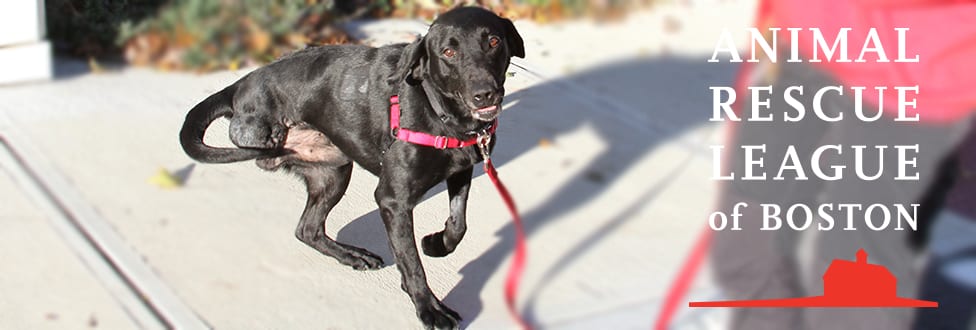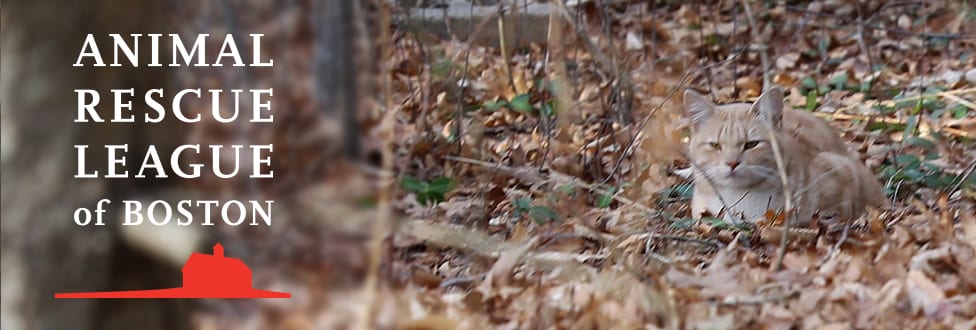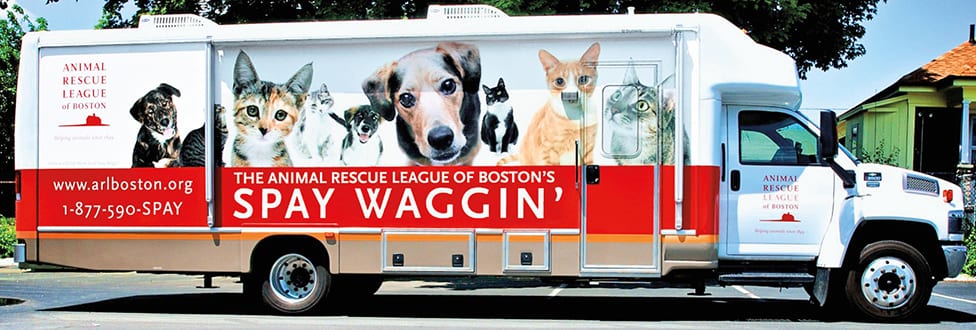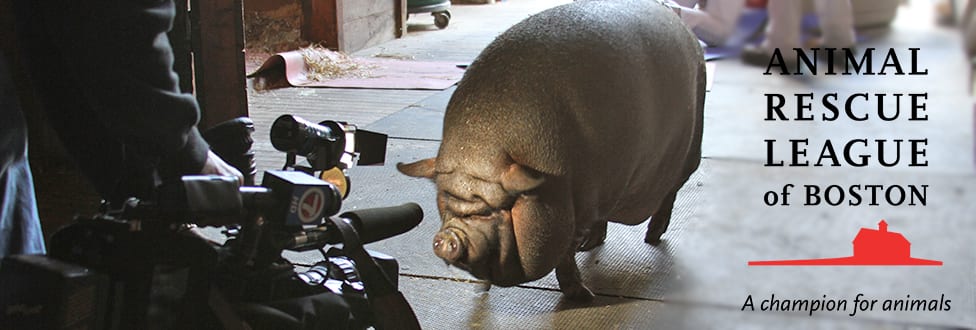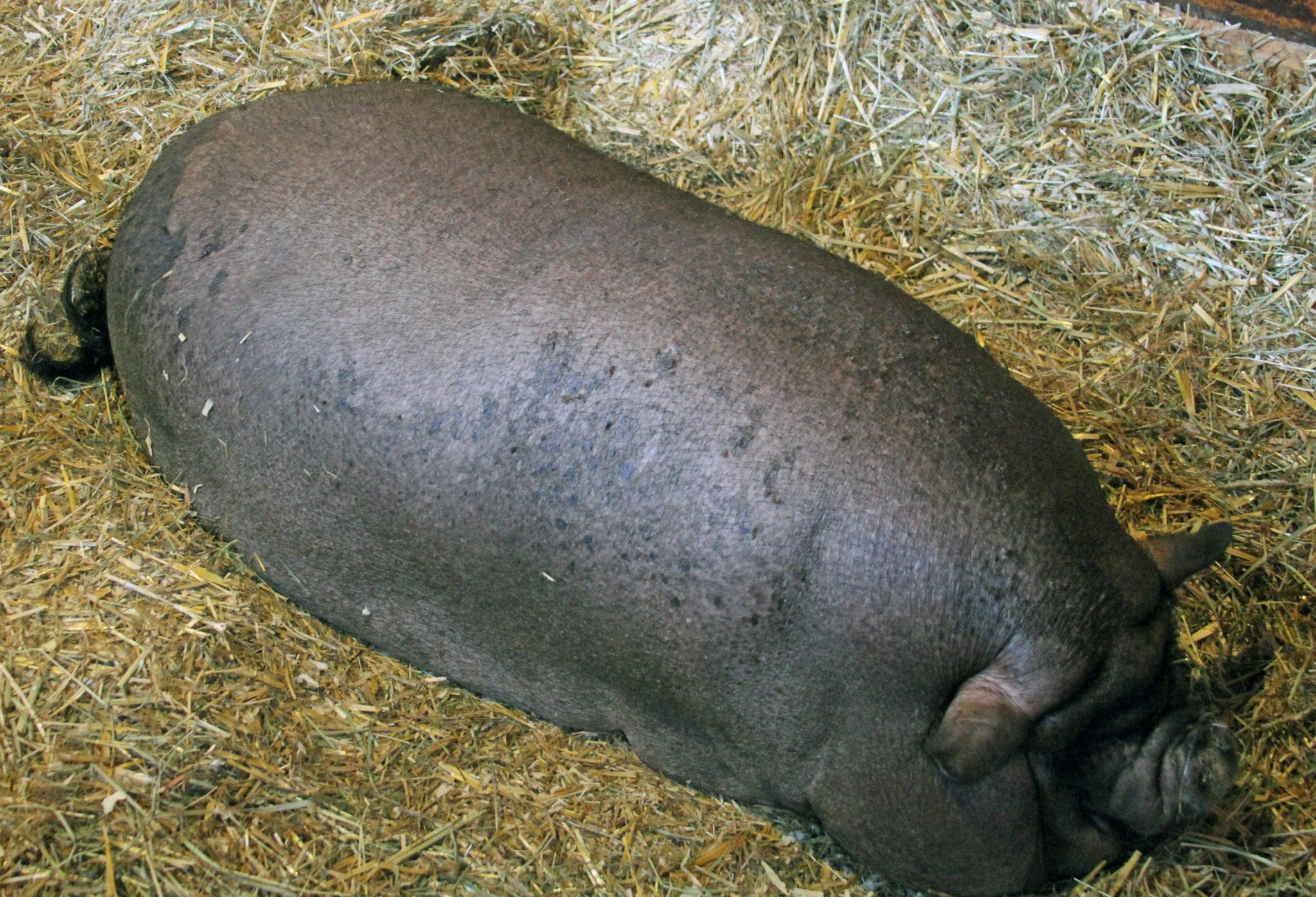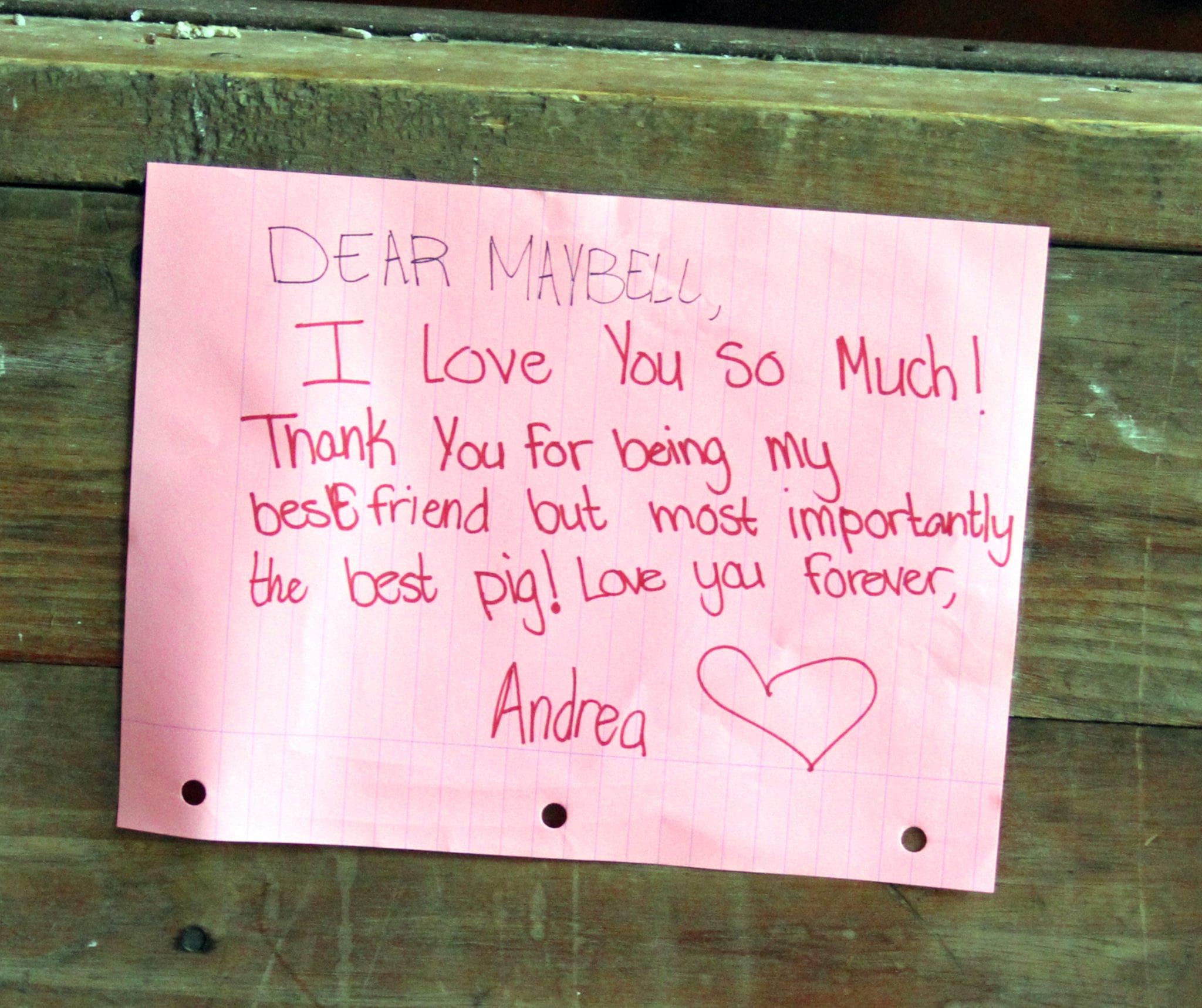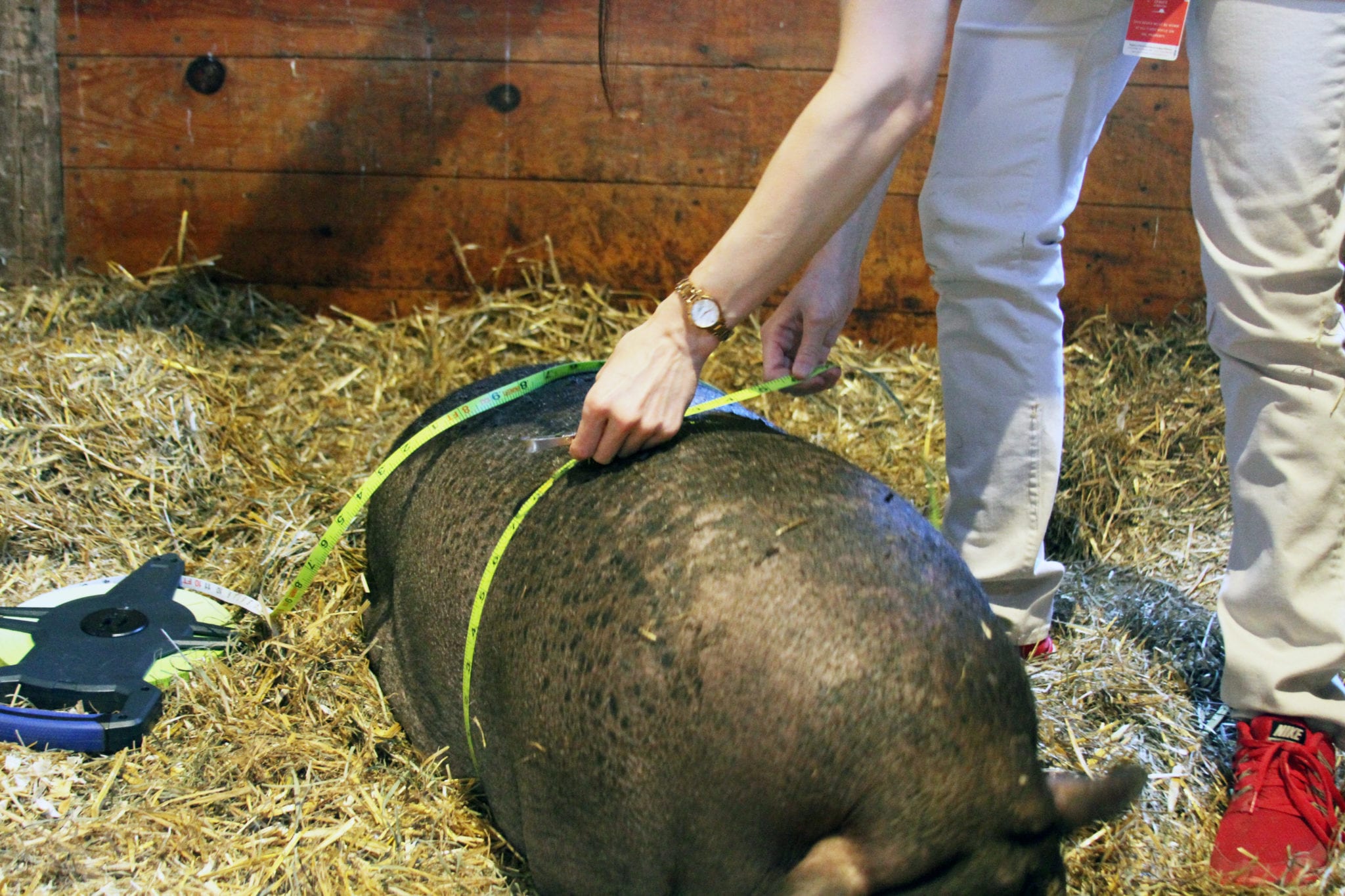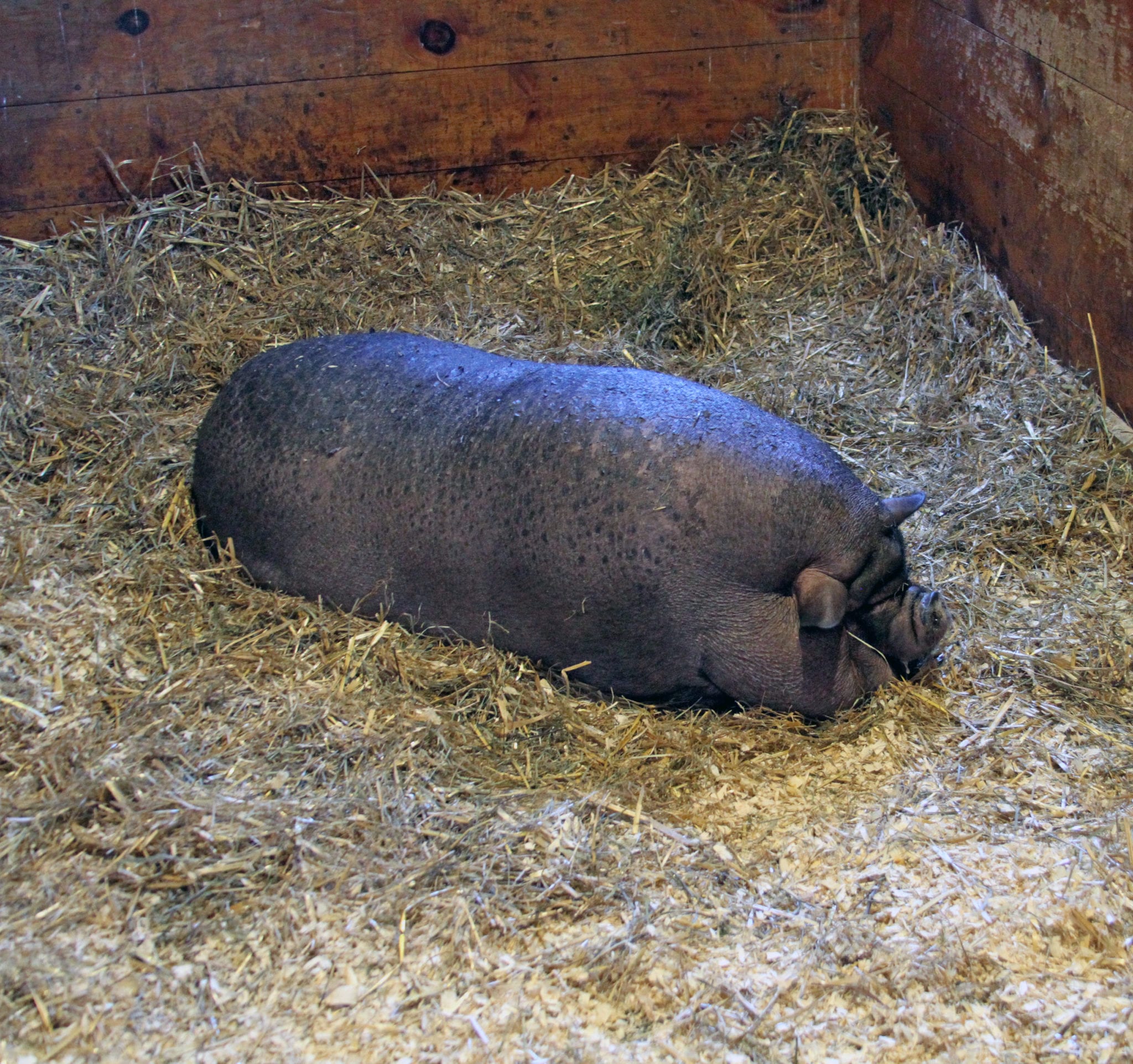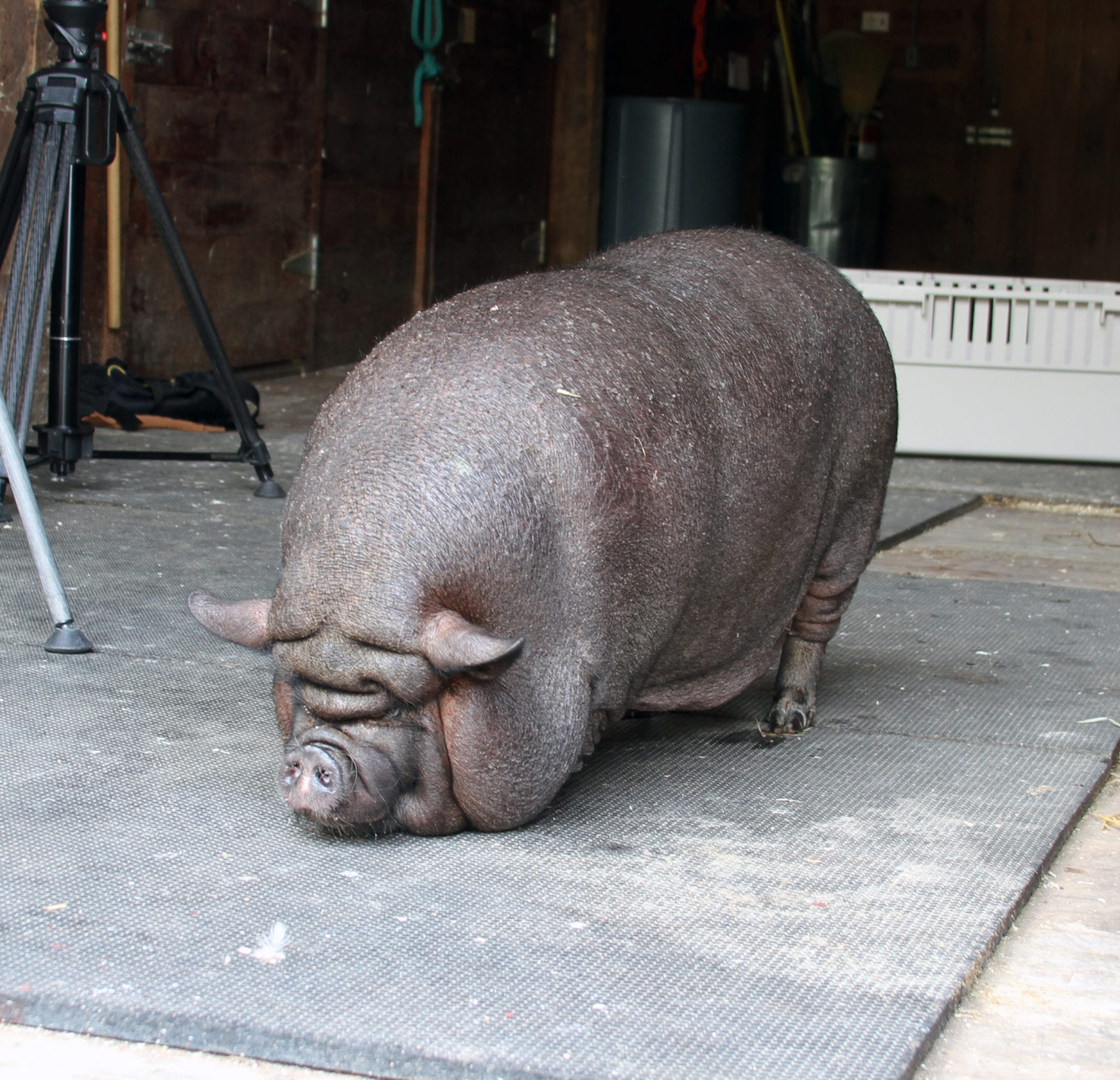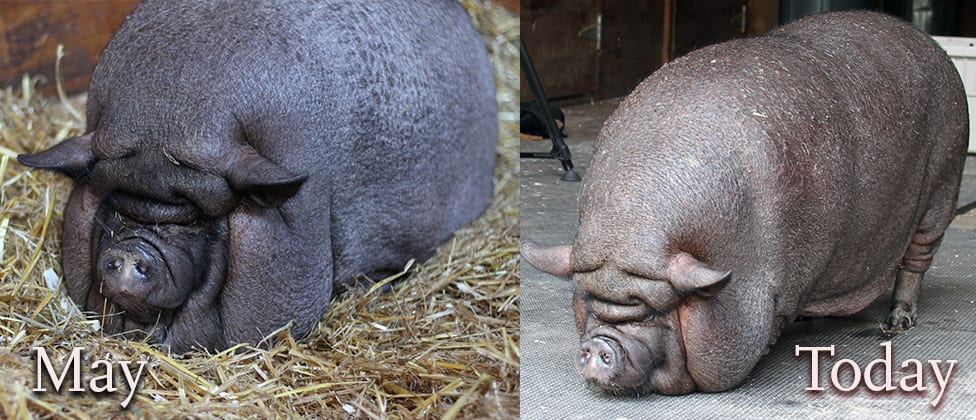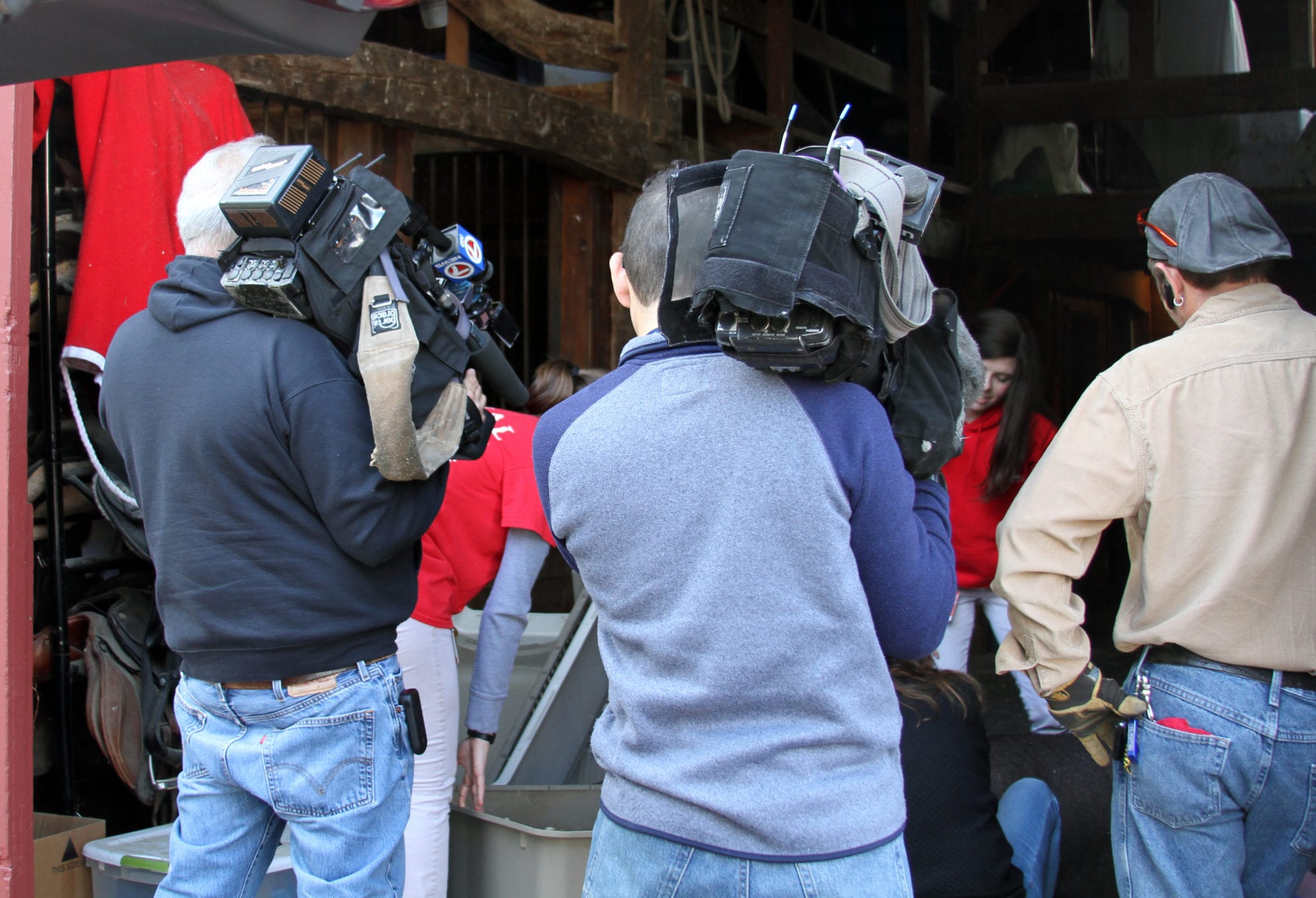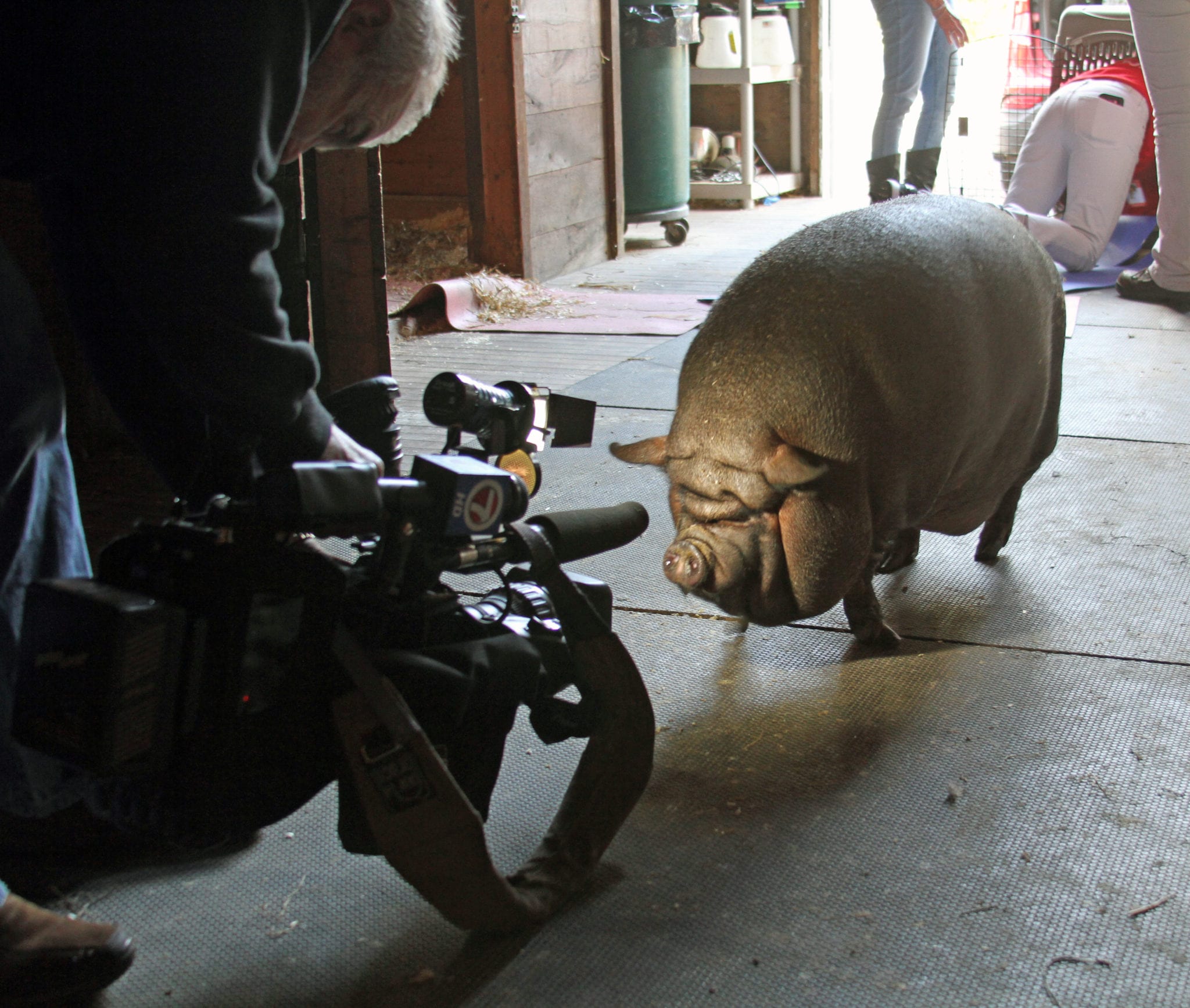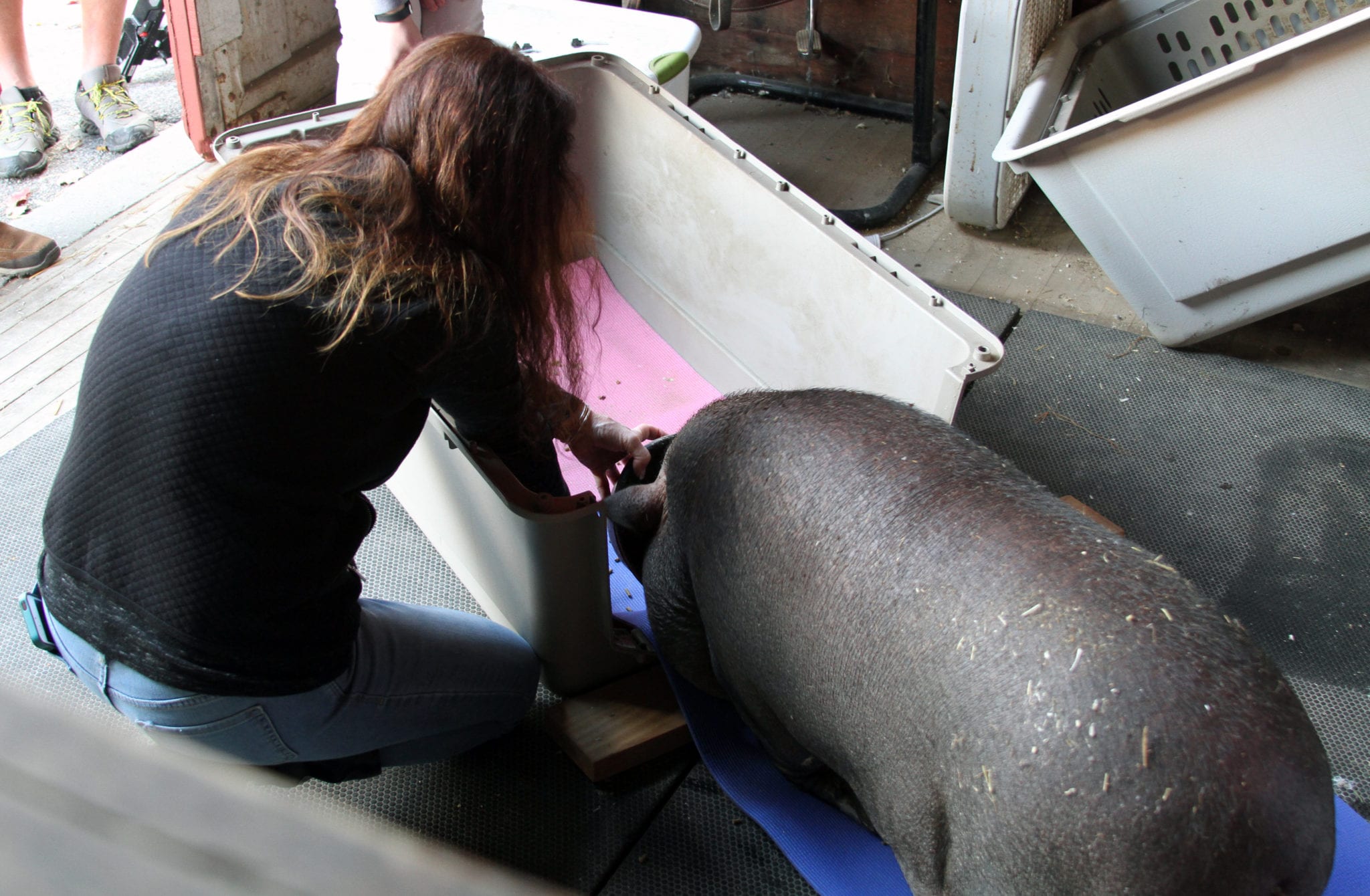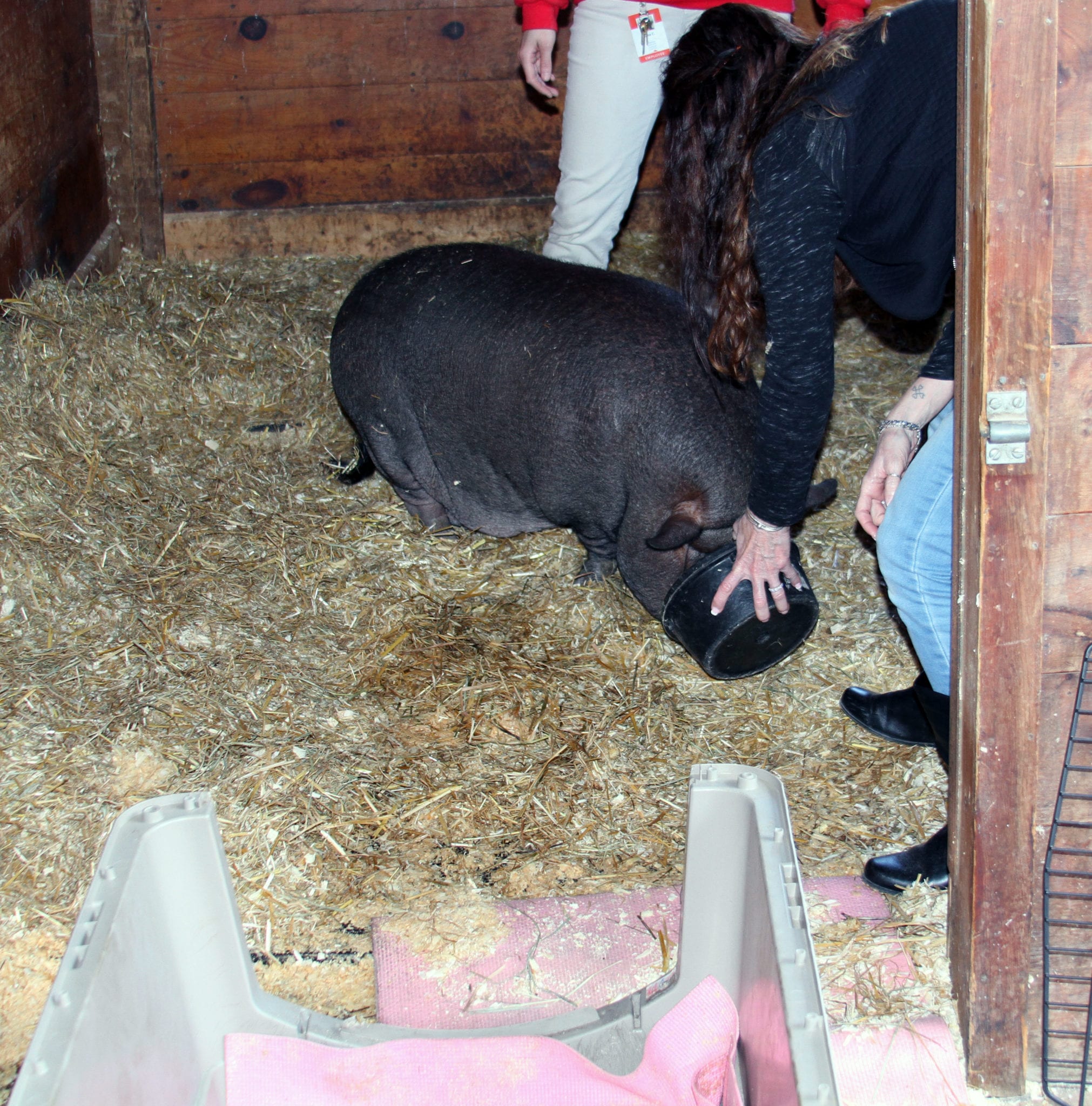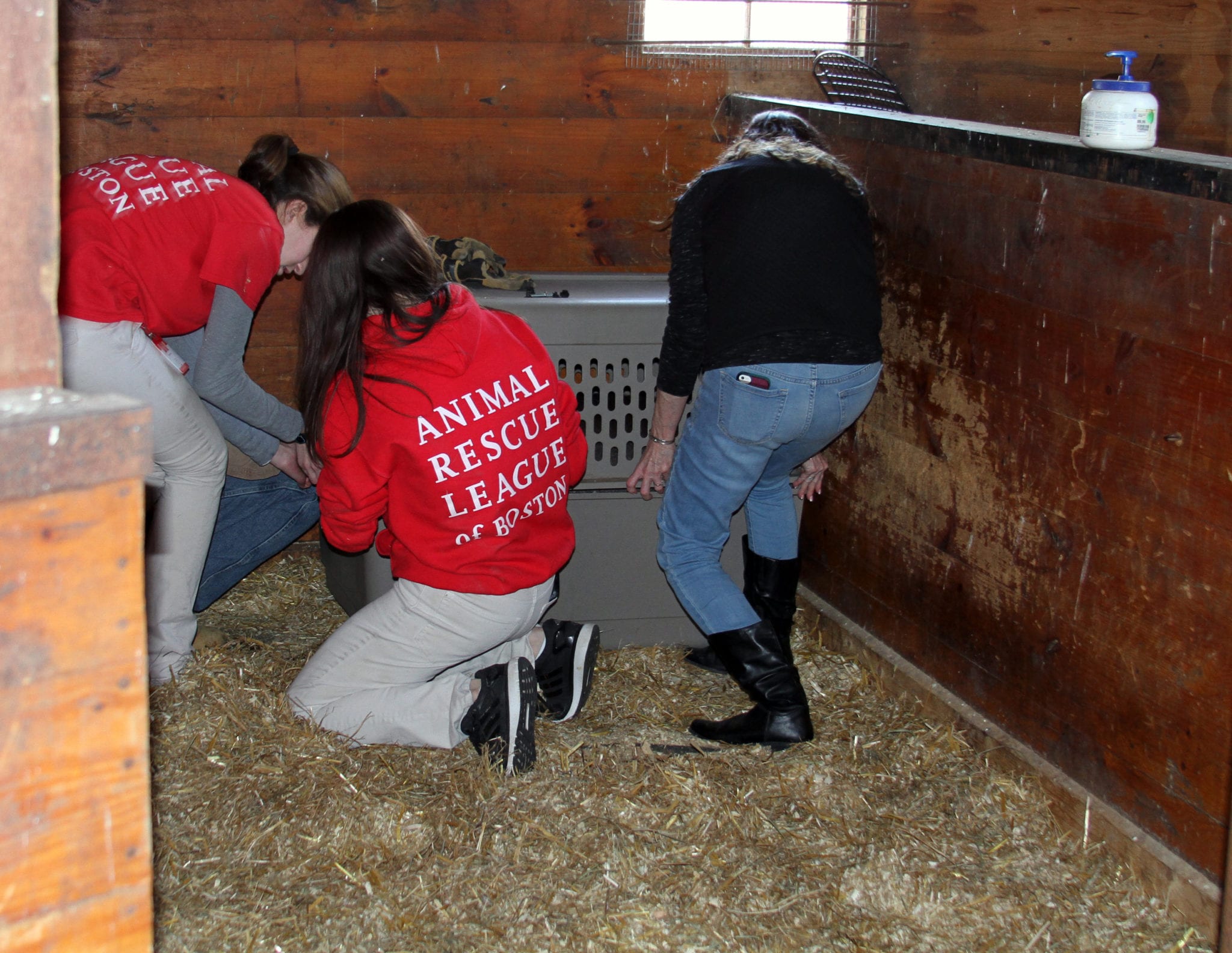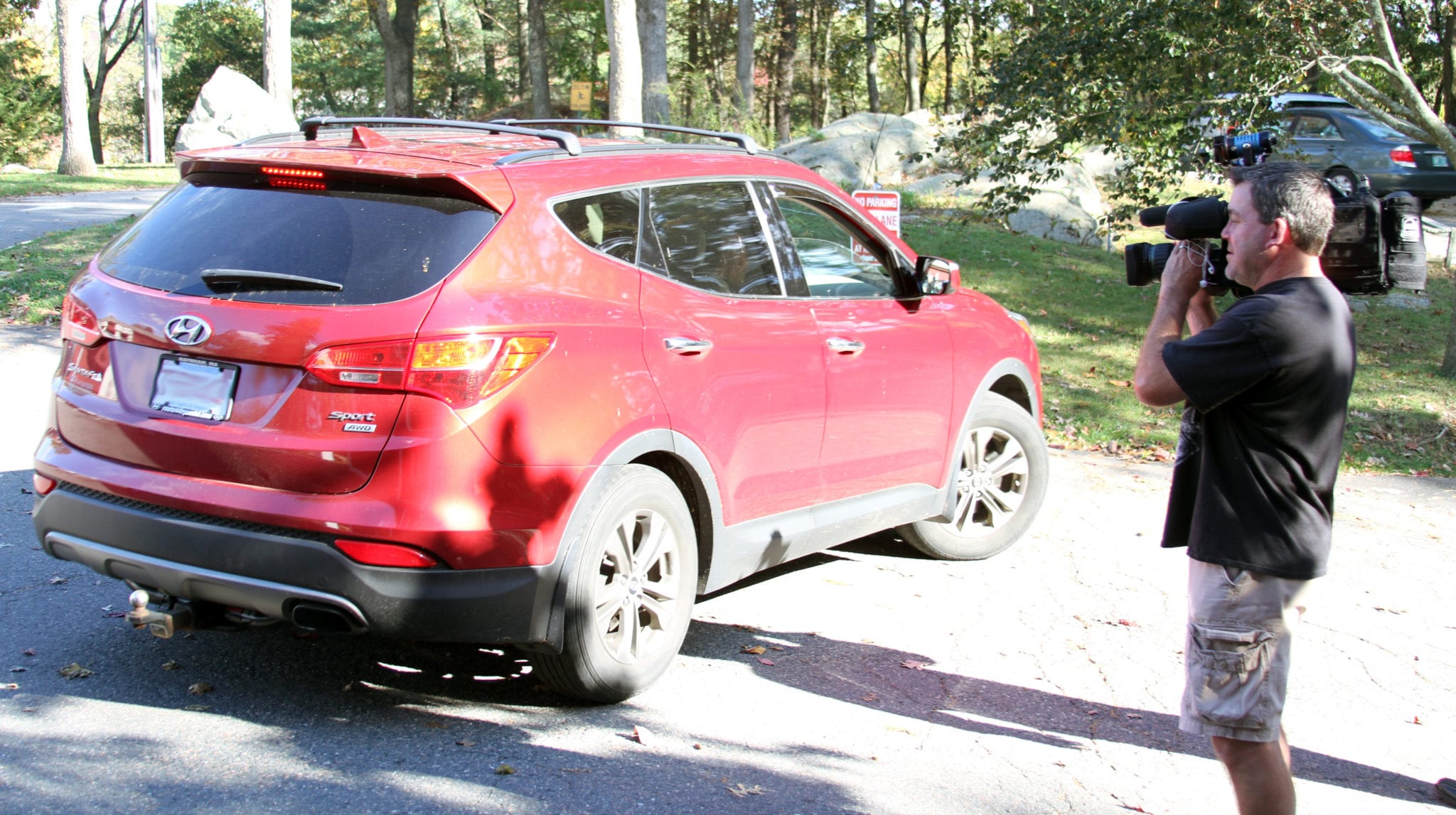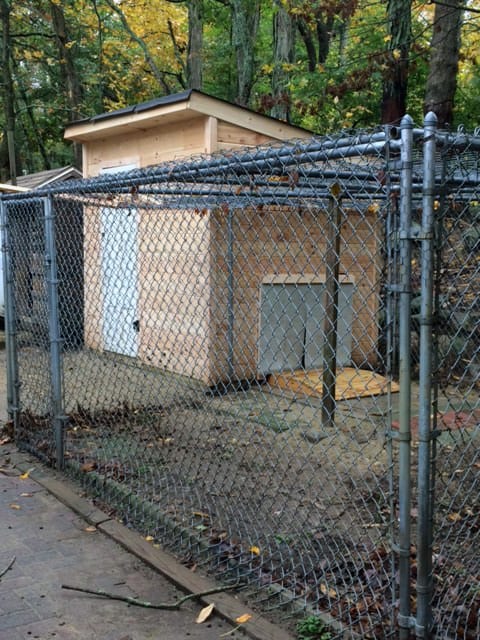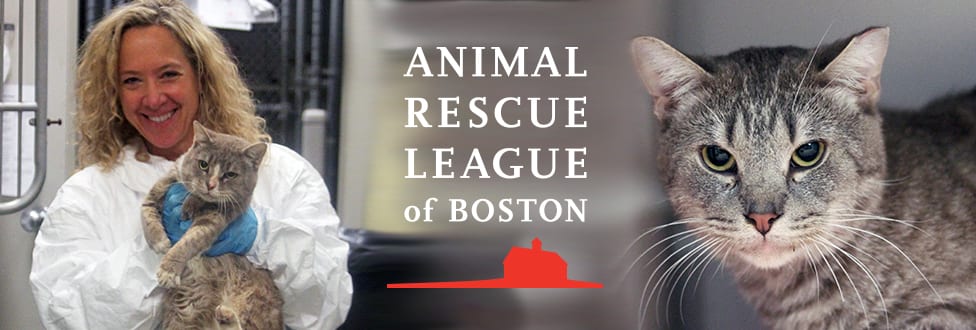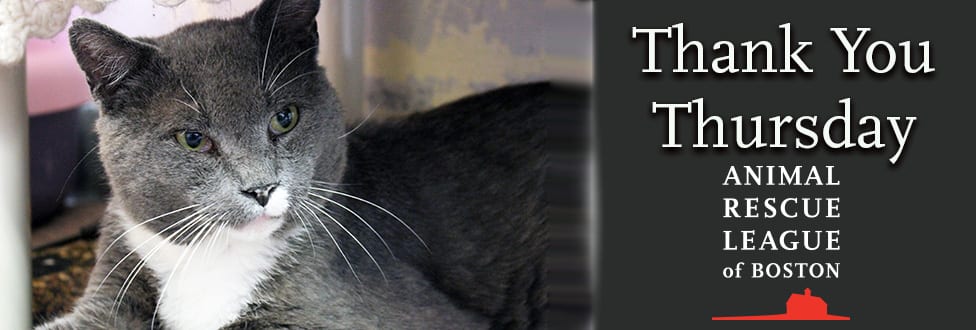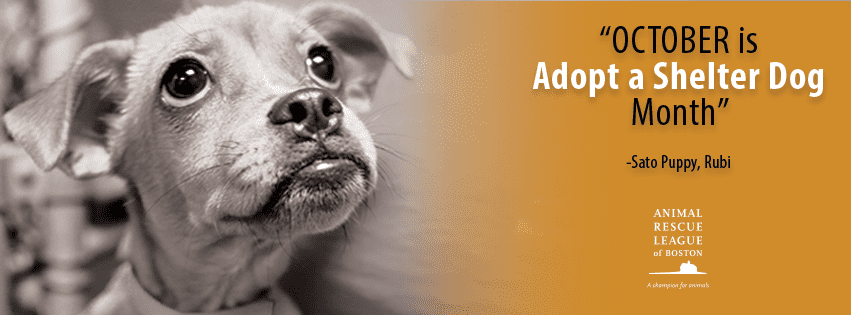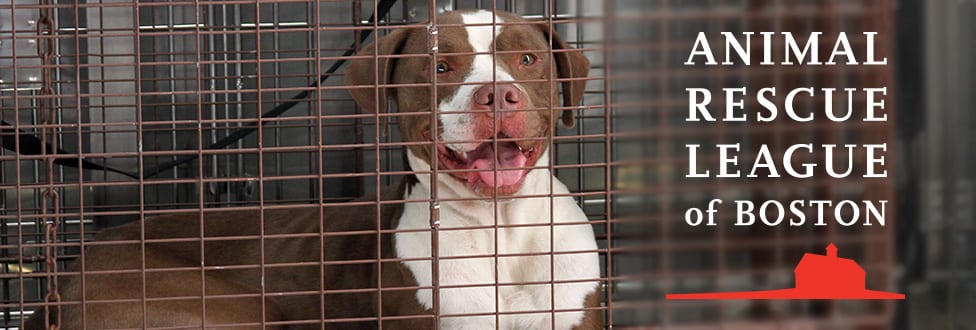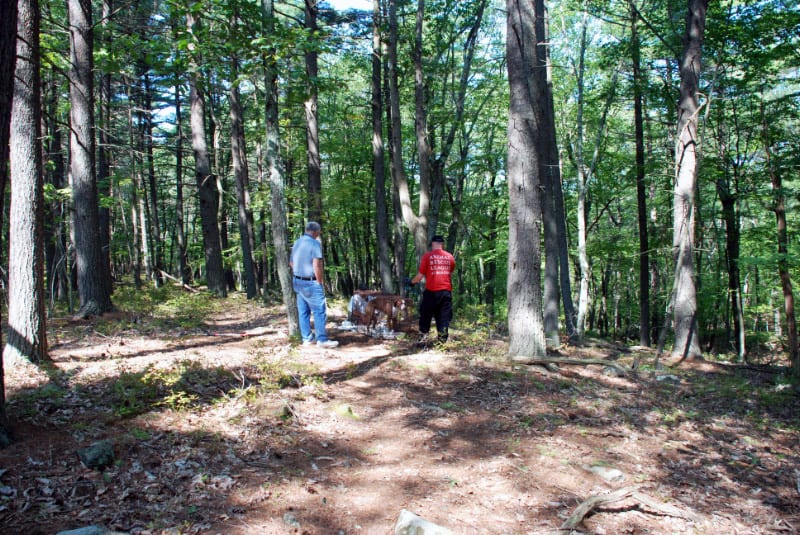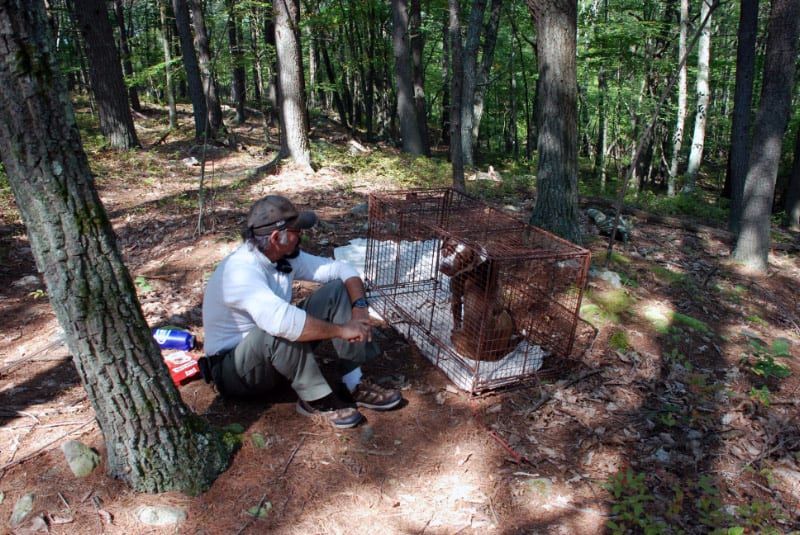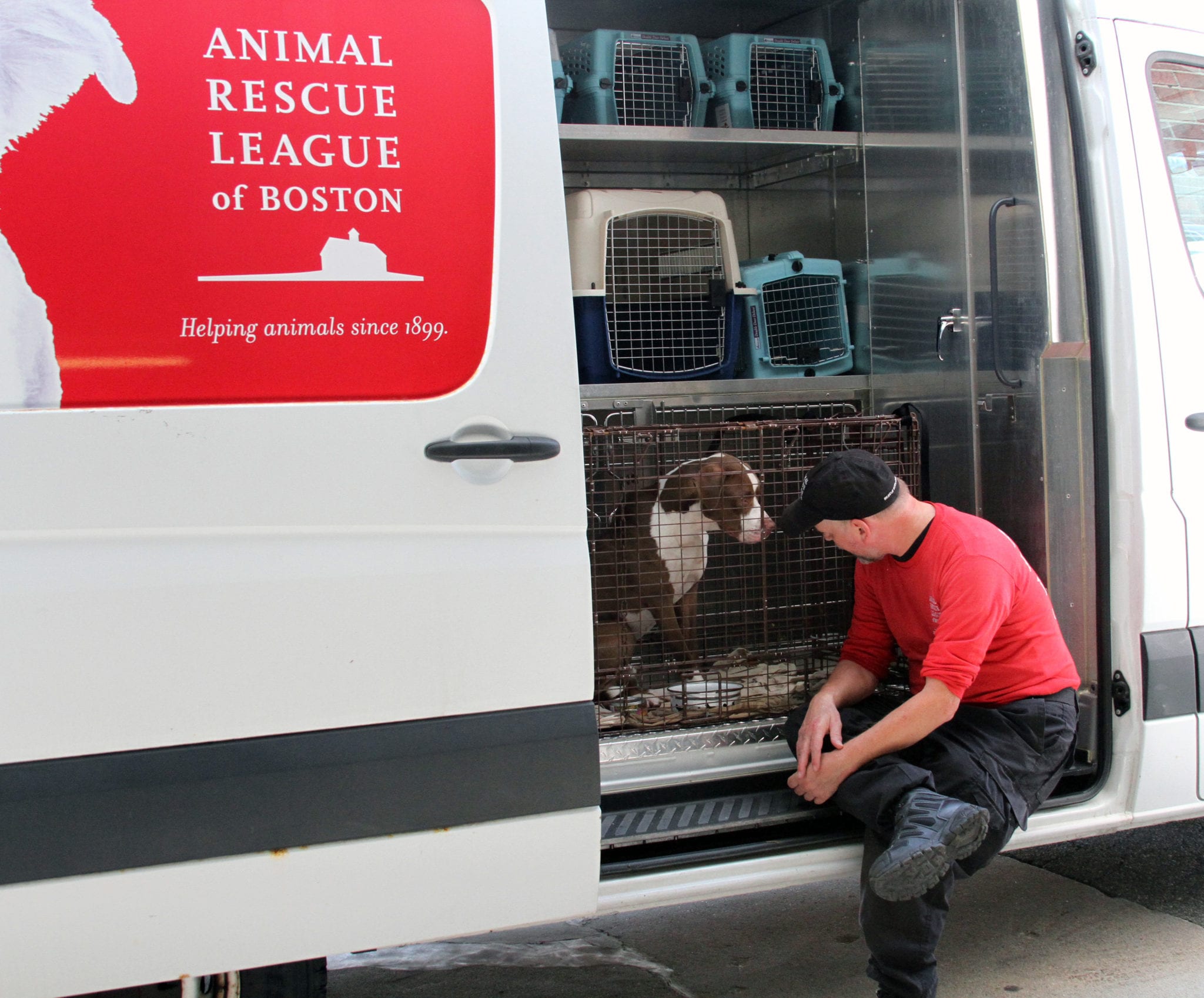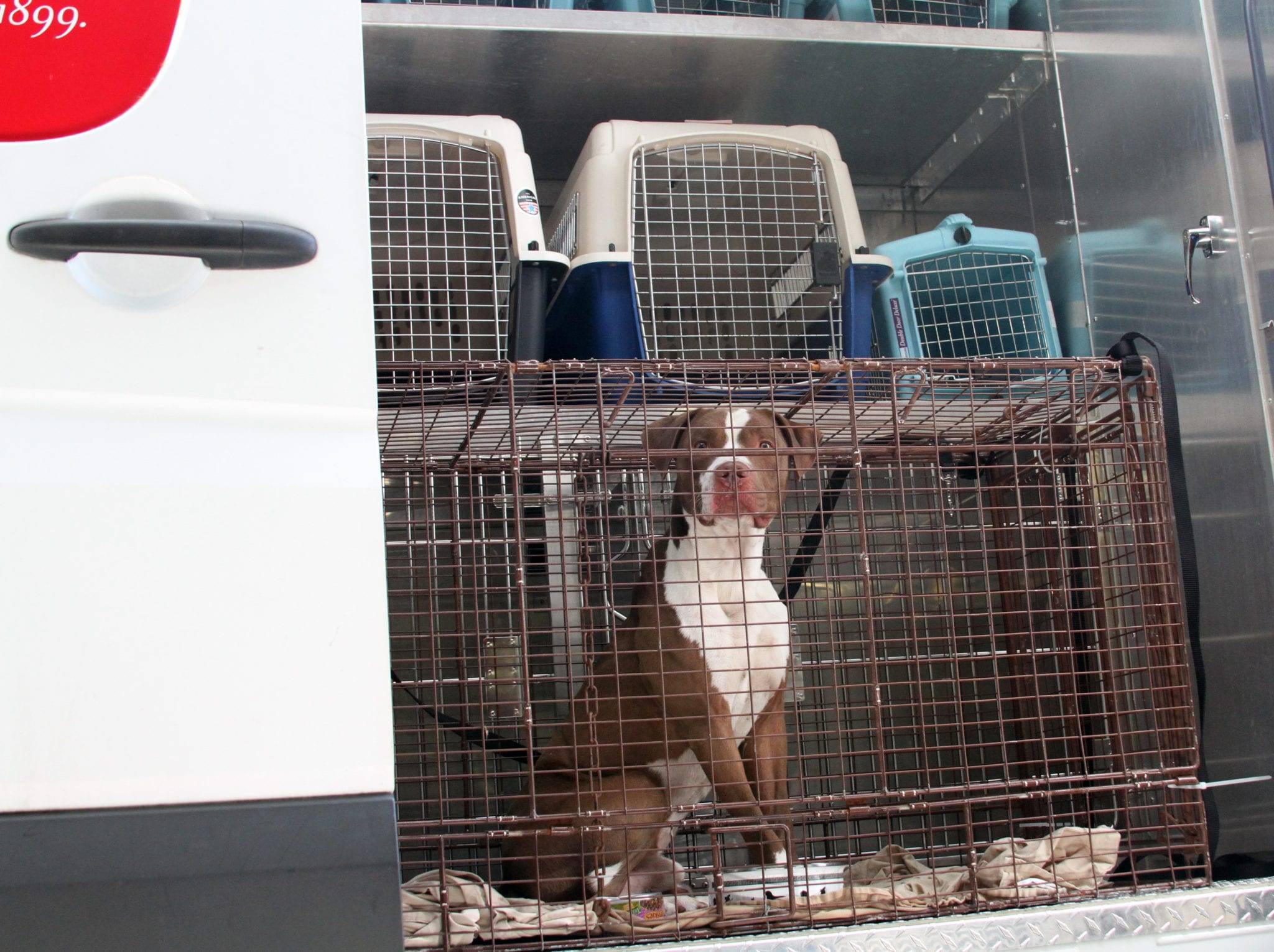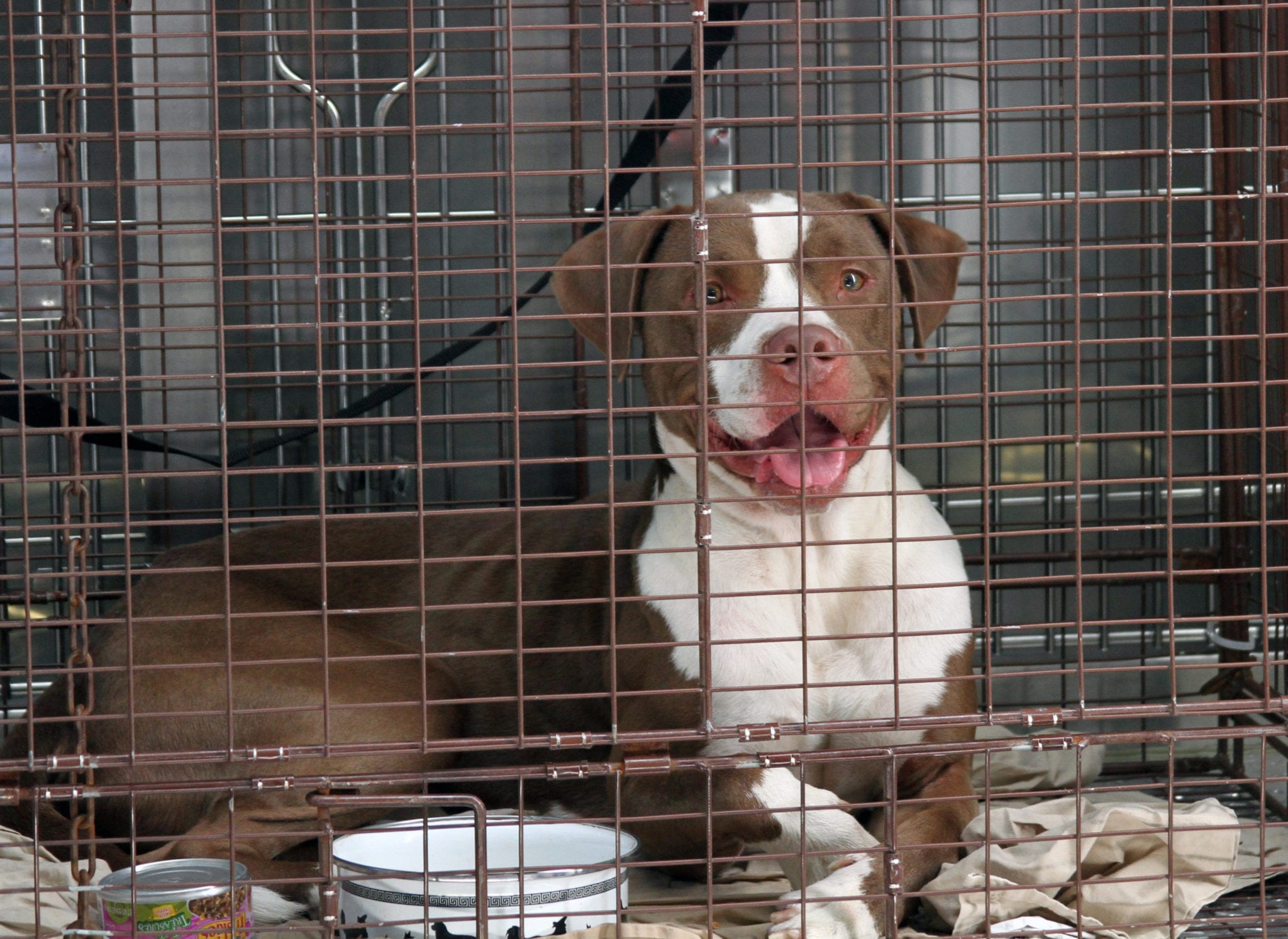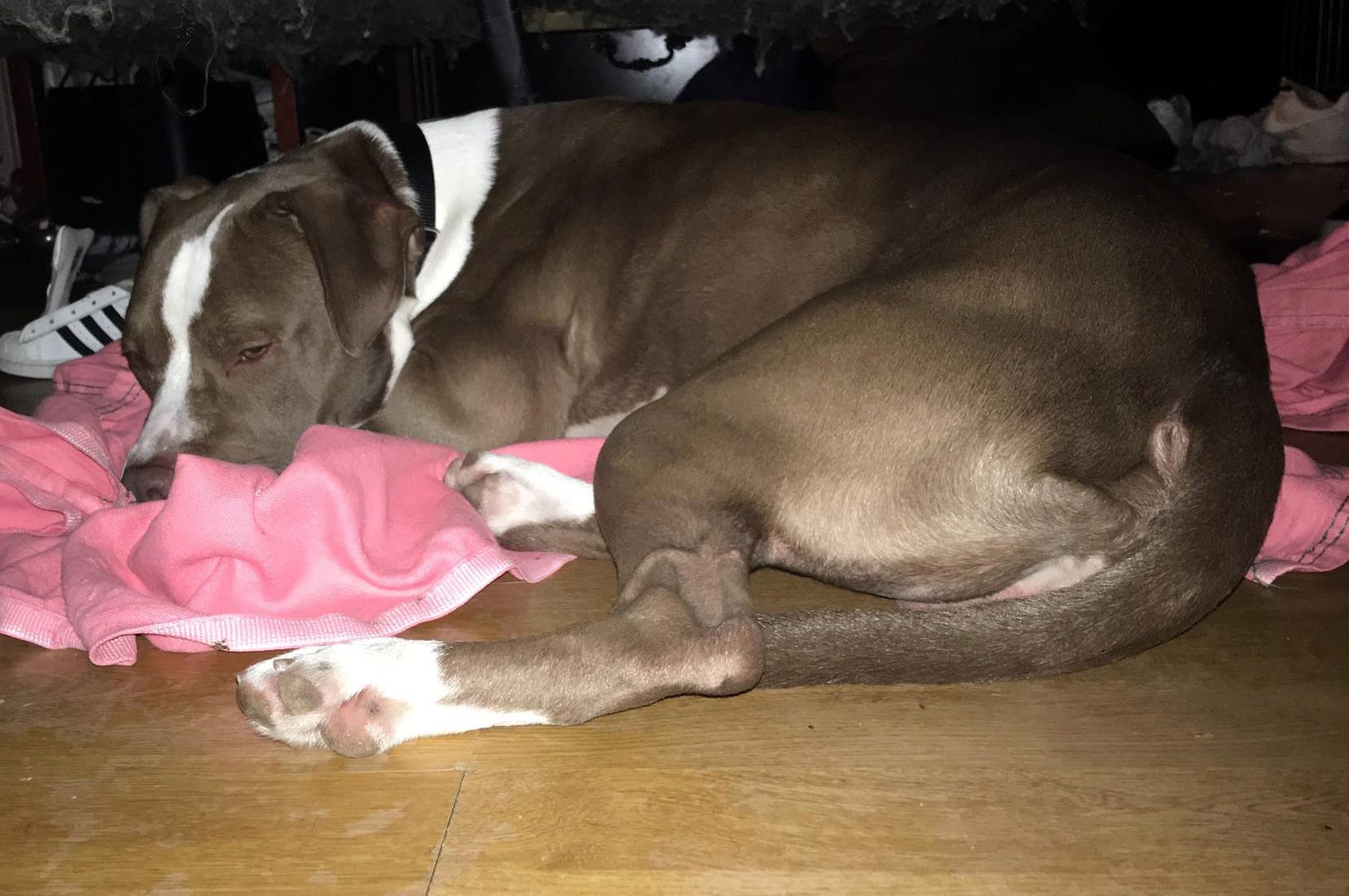The Dangers of Tethering
“Diesel” Suffered Necrotic Foot Due to Tethering
In mid-October, Diesel, a five-year-old black lab mix, was seized by the Animal Rescue League of Boston (ARL) after undergoing an emergency leg amputation at a partner care facility in Norfolk County. The dog was tethered in his previous home, and as a result wound up having his right hind leg entangled in the chain. The chain cut off the circulation, his foot became necrotic and painful, and Diesel was discovered chewing on his foot as a result of the injuries.
Because his foot was beyond repair, amputation was the best surgical option, however, despite being sans one leg, Diesel has not let this slow him down at all.
“Diesel is a wonderful, energetic dog,” said ARL Veterinarian Dr. Kate Gollon. “He is healing well from his surgery and gaining weight appropriately. He should have no lasting effects from this incident and gets around well on three legs.”
Diesel’s case serves as a reminder of not just the dangers of tethering, but also the legal ramifications of excessive tethering.
Massachusetts Tethering Statute Updated
In 2016, the state’s anti-tethering statute was updated as part of S.2369, An Act to Prevent Animal Suffering and Death — a piece of legislation that ARL strongly advocated for. Under the law dogs cannot be:
- Tethered to a stationary object for longer than five hours in a 24-hour period
- Tethered outside from 10 p.m. until 6 a.m., unless not for more than 15 minutes and when the owner, guardian, or keeper is present
- Confined outside when a weather advisory, warning, or watch is issued by local, state, or federal authority; or when environmental conditions such as extreme heat, cold, rain, snow, or hail pose as adverse risk to health or safety of the dog, based upon the dog’s breed, age, or physical condition and unless tethered for less than 15 minutes.
Additionally, law enforcement officers from ARL and MSPCA, who come upon situations where this new law is being violated, now have the authority to issue citations to violators when an Animal Control Officer is unavailable or unresponsive. ARL’s Law Enforcement Department also held a series of forums with Animal Control Officers in the spring to discuss the changes to the law.
“This statute is important on a variety of fronts,” said ARL Law Enforcement Lead Investigator Lt. Alan Borgal. “First off, tethering a dog can have tremendously negative impacts. The animal can become lonely, anxious, which may lead to aggressive behavior. Secondly, there is a high risk of injury with tethering including hanging and entanglement, which sadly was the case with Diesel. These laws are in place to protect these animals, and to ensure that they are being taken care of properly.”
Vigilance is Key
While the outcome for Diesel will ultimately be positive as he will wind up in a loving home, the same cannot be said for countless animals that are constantly tethered. ARL is a Champion for Animals, and you can be too by keeping a watchful eye, and if you see anything you may deem as cruel, report it immediately to ARL Law enforcement, or your local authorities.

